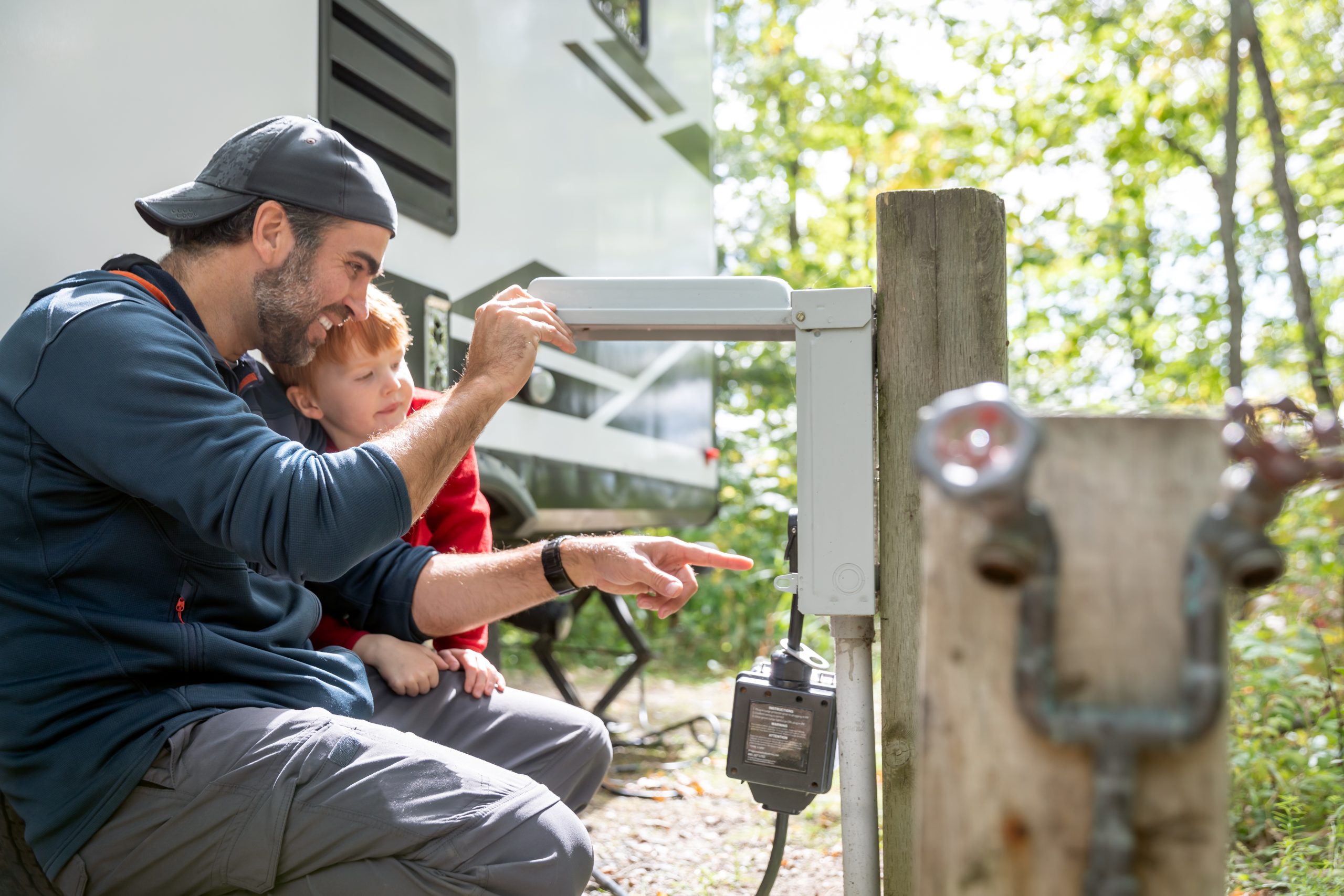While it may be true that April showers bring May flowers, it’s just as certain that springtime is the prime time for tackling outdoor spruce-up chores. But before you start checking off things on your to-do list, be sure to take note of how to complete your tasks safely.
Rick Coons, CEO of Indiana Electric Cooperatives reminds consumers that safety hazards are not only up high at tree and roof level, but also underground. “Be sure to stay clear of overhead power lines when working outdoors,” Coons said. “Remember to maintain a 10-foot clearance and never work from a metal ladder since metal conducts electricity. Choose a wooden or fiberglass ladder instead.”
Meanwhile, if your springtime chores involve digging, you must call 811, the national “Call Before You Dig” number at least 72 hours beforehand so utility companies like your electric co-op can be notified of your plans. They will then come out and mark underground line locations on your property at no charge. “If you know where underground utility lines are before you start digging, you can safeguard yourself from possible penalties and expense — and most importantly, injury,” Coons said. “Do-it-yourselfers are usually surprised to know that even simple digging projects can harm utility lines.”
Other outdoor safety tips include:
- Don’t work outside with electrical devices when it’s damp outside. Also, keep those devices and cords away from water.
- If you’re going to use an extension cord outside, make sure it is designated for outdoor use. Before using power tools and electric devices, check them for frayed cords, broken plugs, and cracked or broken housing. Don’t use devices that are damaged.
- Keep waterproof covers on outdoor outlets that are not being used.
- Unplug electric power tools — by grasping the plug, not the wire — when they are not being used. Store them indoors.
- Don’t trim trees that are within 10 feet of a power line. Only trained and experienced line-clearance tree trimmers should handle those tree trimming jobs.
- Before climbing a tree, inspect the limbs to assess their strength and stability. Wear appropriate fall protection. Don’t climb if you are carrying tools in your hands.
“You may think you are saving time by not following basic outdoor safety rules,” Coons said. “But by being careful all the time, you are guarding yourself and others around you from costly and potentially fatal dangers. There’s always time to practice safety.”
Sources: Central Montana Electric Power Cooperative



